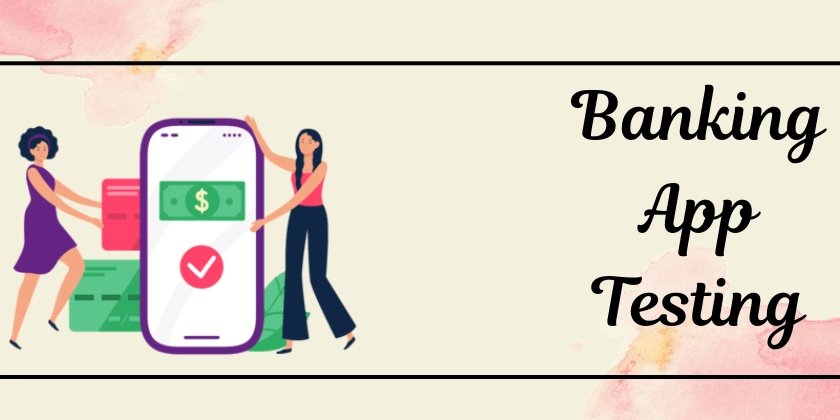Getting Started with API Keys: A Friendly Guide for New Developers
The efficiency with which data travels between platforms is fast becoming a crucial knowledge point in this age of intelligent applications and seamless integrations, where one speaks of API key-an all-important tiny entity that enables apps, websites, and even systems to interact with one another through the associated API as well as doing so effectively and in a secured manner. Whether you are an amateur with just a curious mind or an aspiring developer, it is worth your while to study API keys as continuous stepping stones to web APIs. API Theory API is used to mean Application Programming Interface. To be more precise, it is like a waiter in a restaurant; if you are the individual ordering, and the kitchen is the server making or cooking up your meal, then the waiter is the API whose job you asked to bring the food to you. APIs allow one computer program to communicate with another. For example, let's say you register with a website using your account with Google. An API lets that site and Google's servers communicate back-end on your behalf. So when you see the weather changes in your app, it's very likely via some third-party-provided API that you get that data. What Is API Key? An API key is similar to a unique identification card that is used to identify the user or application making a request to an API. It is a combination of letters and numbers passed along with each API call to confirm whether a request is legitimate. This is how it goes: A developer registers with a certain platform (for example, OpenAI, Google, Twitter). The platform pays for a unique API key. That is included in the API request so that it can be authenticated and also logged for usage. Providers may then control access to their services, prevent spam or overuse by monitoring traffic or users, as well as enforcing quota and billing. Why Do We Need API Keys? API keys are very important for: Security: It ensures that only approved users or applications can access sensitive resources. Monitoring: It's possible for that platform to know how much and how the service has been used and report misfires. Personalization: Some APIs return custom response to a particular API key. Remember, though, that API keys seldom secure an overall security scheme by themselves; they may leak if not handled properly. Hence, most developers keep them with other means of authentication, say OAuth tokens or at least an encryption. Where is the API Key used? Today, you would have an API key in almost every digital experience you have: Payment gateways such as Stripe or Razorpay AI tools interfacing ChatGPT or images-generating models Maps and location services Social media integrations Internet of Things devices News aggregators With the explosion of modern applications on the web and mobile, API keys have become pivotal in securing and managing them. The improper handling of API keys is one of the reasons cited for certain recent tech-related incidents, including data leaks and unauthorized access. The incident with the cloud automation service in 2025 when API keys were exposed on public repositories on GitHub reflected compromised customer workflows and the need for secure key management. Some of the best practices in the handling of API keys are: Never hardcode into your application source code Store them securely using environment variables Periodically regenerate keys or if you suspect they may have been misused Limit permissions based on the purpose of the key Rotate and revoke based on the need Newer tools and services would also ensure minimal risk by auto-rotating keys and vault-based secure storage. Getting Started with API Keys You should be applying these for experimentation or something small: Pick your API (for example, OpenAI, NewsAPI, or Spotify) Register for a developer account. Request an API key. You start making API calls from there using some tool like Postman or Python's requests library. Most of the API providers also provide a sandbox for testing along with well-documented guides to get you started fast. The Future of APIs and Why it Matters APIs are becoming smarter and much more autonomous. The advent of Generative AI has transformed APIs into tools that, from mere provision of static data, have become facilitators for the generation of human-like text, visual images, and even real-time decisions. Platforms are releasing these powerful models with their access through APIs only; hence API literacy has become the most popular skill in the toolkit for today’s developers, marketers, and entrepreneurs. API gateways will also emerge in the future alongside AI-based rate-limiting and even self-healing APIs that will be optimized by themselves. It is more important now than ever to learn the use and securing of keys as AI will continue to change. Conclusion In a world where applications talk to each other more than ever, API keys are the gatekeepers of trust and access. Whether building a chatbot, integrating real-time d
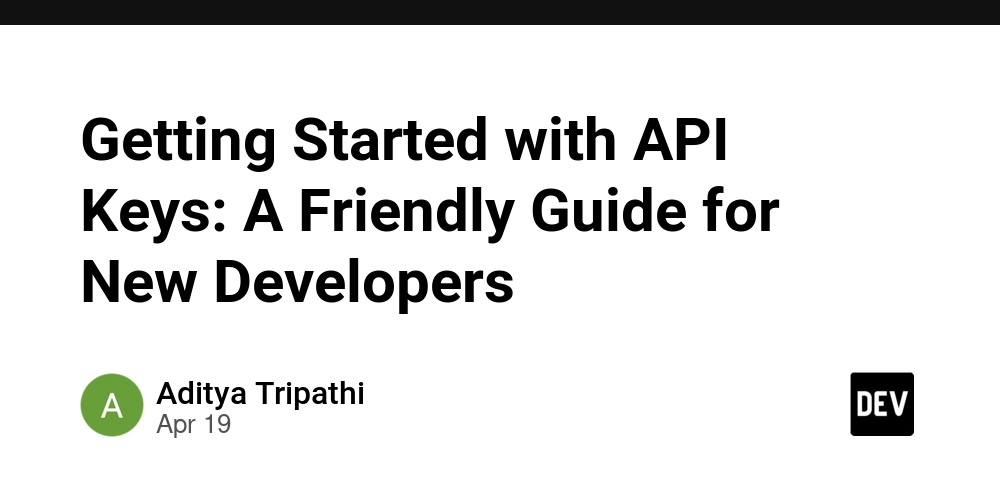
The efficiency with which data travels between platforms is fast becoming a crucial knowledge point in this age of intelligent applications and seamless integrations, where one speaks of API key-an all-important tiny entity that enables apps, websites, and even systems to interact with one another through the associated API as well as doing so effectively and in a secured manner. Whether you are an amateur with just a curious mind or an aspiring developer, it is worth your while to study API keys as continuous stepping stones to web APIs.
API Theory
API is used to mean Application Programming Interface. To be more precise, it is like a waiter in a restaurant; if you are the individual ordering, and the kitchen is the server making or cooking up your meal, then the waiter is the API whose job you asked to bring the food to you. APIs allow one computer program to communicate with another.
For example, let's say you register with a website using your account with Google. An API lets that site and Google's servers communicate back-end on your behalf. So when you see the weather changes in your app, it's very likely via some third-party-provided API that you get that data.
What Is API Key?
An API key is similar to a unique identification card that is used to identify the user or application making a request to an API. It is a combination of letters and numbers passed along with each API call to confirm whether a request is legitimate.
This is how it goes:
A developer registers with a certain platform (for example, OpenAI, Google, Twitter).
The platform pays for a unique API key.
That is included in the API request so that it can be authenticated and also logged for usage.
Providers may then control access to their services, prevent spam or overuse by monitoring traffic or users, as well as enforcing quota and billing.
Why Do We Need API Keys?
API keys are very important for:
Security: It ensures that only approved users or applications can access sensitive resources.
Monitoring: It's possible for that platform to know how much and how the service has been used and report misfires.
Personalization: Some APIs return custom response to a particular API key.
Remember, though, that API keys seldom secure an overall security scheme by themselves; they may leak if not handled properly. Hence, most developers keep them with other means of authentication, say OAuth tokens or at least an encryption.
Where is the API Key used?
Today, you would have an API key in almost every digital experience you have:
Payment gateways such as Stripe or Razorpay
AI tools interfacing ChatGPT or images-generating models
Maps and location services
Social media integrations
Internet of Things devices
News aggregators
With the explosion of modern applications on the web and mobile, API keys have become pivotal in securing and managing them.
The improper handling of API keys is one of the reasons cited for certain recent tech-related incidents, including data leaks and unauthorized access. The incident with the cloud automation service in 2025 when API keys were exposed on public repositories on GitHub reflected compromised customer workflows and the need for secure key management.
Some of the best practices in the handling of API keys are:
Never hardcode into your application source code
Store them securely using environment variables
Periodically regenerate keys or if you suspect they may have been misused
Limit permissions based on the purpose of the key
Rotate and revoke based on the need
Newer tools and services would also ensure minimal risk by auto-rotating keys and vault-based secure storage.
Getting Started with API Keys
You should be applying these for experimentation or something small:
Pick your API (for example, OpenAI, NewsAPI, or Spotify)
Register for a developer account.
Request an API key.
You start making API calls from there using some tool like Postman or Python's requests library.
Most of the API providers also provide a sandbox for testing along with well-documented guides to get you started fast.
The Future of APIs and Why it Matters
APIs are becoming smarter and much more autonomous. The advent of Generative AI has transformed APIs into tools that, from mere provision of static data, have become facilitators for the generation of human-like text, visual images, and even real-time decisions. Platforms are releasing these powerful models with their access through APIs only; hence API literacy has become the most popular skill in the toolkit for today’s developers, marketers, and entrepreneurs.
API gateways will also emerge in the future alongside AI-based rate-limiting and even self-healing APIs that will be optimized by themselves. It is more important now than ever to learn the use and securing of keys as AI will continue to change.
Conclusion
In a world where applications talk to each other more than ever, API keys are the gatekeepers of trust and access. Whether building a chatbot, integrating real-time data, or merely partaking in what-if scenarios, learning how API keys work is the foundation.
In the era of AI development, when interest has soared to yet another limit, many people are taking the upskilling route. This is true even more in places where digital infrastructure is gaining pace. If you're smart enough to start an online generative AI course in India after learning the basics about APIs, the knowledge of API-based systems will be in even higher demand.









































































































































































![[The AI Show Episode 144]: ChatGPT’s New Memory, Shopify CEO’s Leaked “AI First” Memo, Google Cloud Next Releases, o3 and o4-mini Coming Soon & Llama 4’s Rocky Launch](https://www.marketingaiinstitute.com/hubfs/ep%20144%20cover.png)
















































































































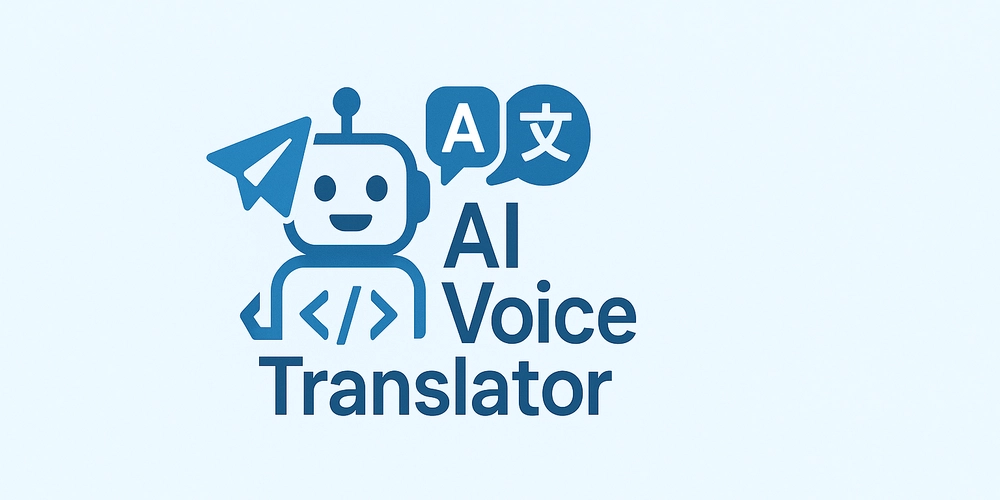
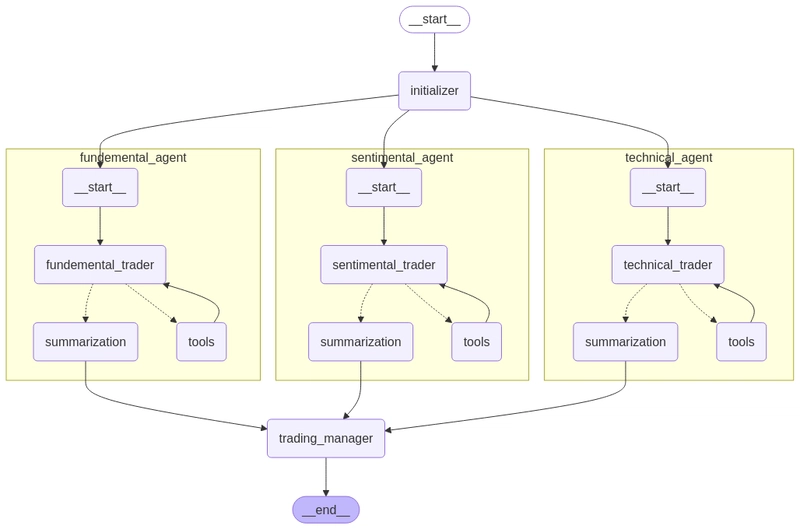
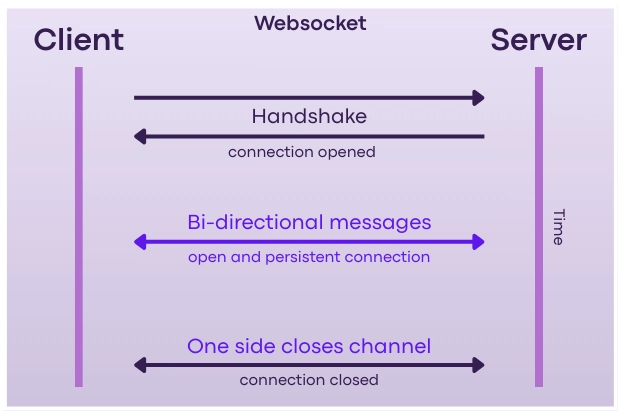










![[DEALS] The All-in-One Microsoft Office Pro 2019 for Windows: Lifetime License + Windows 11 Pro Bundle (89% off) & Other Deals Up To 98% Off](https://www.javacodegeeks.com/wp-content/uploads/2012/12/jcg-logo.jpg)



























![Is this too much for a modular monolith system? [closed]](https://i.sstatic.net/pYL1nsfg.png)






















































































































_Andreas_Prott_Alamy.jpg?width=1280&auto=webp&quality=80&disable=upscale#)






























































































![What features do you get with Gemini Advanced? [April 2025]](https://i0.wp.com/9to5google.com/wp-content/uploads/sites/4/2024/02/gemini-advanced-cover.jpg?resize=1200%2C628&quality=82&strip=all&ssl=1)












![Apple Shares Official Trailer for 'Long Way Home' Starring Ewan McGregor and Charley Boorman [Video]](https://www.iclarified.com/images/news/97069/97069/97069-640.jpg)
![Apple Watch Series 10 Back On Sale for $299! [Lowest Price Ever]](https://www.iclarified.com/images/news/96657/96657/96657-640.jpg)
![EU Postpones Apple App Store Fines Amid Tariff Negotiations [Report]](https://www.iclarified.com/images/news/97068/97068/97068-640.jpg)
![Apple Slips to Fifth in China's Smartphone Market with 9% Decline [Report]](https://www.iclarified.com/images/news/97065/97065/97065-640.jpg)


































































































































